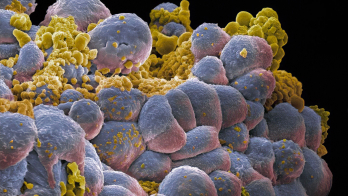On 9–10 September, representatives of about 70 institutes worldwide met at CERN to establish the International Collaboration Board (ICB) at the Future Circular Collider (FCC) study. The study covers the designs of a 100-TeV hadron collider and a high-luminosity lepton collider, the associated detectors and physics studies, and a lepton–hadron collider option. These generic and mostly site-independent studies will be complemented by a civil-engineering study for the Geneva area, requested in the context of the European Strategy for Particle Physics. The large attendance at the preparatory ICB meeting testifies to the attractiveness of the FCC approach, which aims to explore the energy scale of tens of teraelectronvolts.
Opening the meeting, CERN’s director-general, Rolf Heuer, outlined the planned organizational structure of the FCC study, which will operate as an international collaboration under the auspices of the European Committee for Future Accelerators. As the central overseeing body, the ICB will comprise representatives from all participating institutes. The proposed structure was endorsed by all attendees. Prior to the meeting, more than 20 institutes had already signed the FCC Memorandum of Understanding and become official members of the FCC collaboration. Several more institutes joined during the event. The institutes with confirmed participation endorsed Leonid Rivkin of Ecole polytechnique fédérale de Lausanne and PSI – a widely recognized accelerator expert – as interim chair of the ICB.
Delegates were impressed by the progress made on this design since the FCC kick-off event at the University of Geneva in February. The presentations reviewed the status of ongoing work for the study formation, accelerator designs, technologies, infrastructure, and experiments. They highlighted, in particular, the anticipated impact that the study should have on many different types of technologies, such as advanced cryogenics, new production procedures for RF cavities, novel surface treatments of vacuum-chamber materials, lower-cost and more compact high-field magnets. Representatives of most of the institutes participating also described their respective expertise and proposed contributions.
In parallel to the progress being made in forming the international FCC collaboration, a design-study proposal focused on the FCC hadron collider has been submitted to the European Commission in the context of the Horizon 2020 programme. The main technological R&D areas have been identified, and a work plan is being established with potential partners.
The coming months will see enhanced design activities aimed at convergence and down-selection between different alternative options for the overall collider layouts and beam parameters. The next major milestone for the FCC collaboration will be the first large annual workshop, which will take place in Washington DC on 23–27 March 2015.








